In Kunming: the Bamboo Temple
July 19th, 2013

There are rows and rows and rows of them. Sitting on shelves, standing and talking to each other, debating, yelling, meditating. They take up two or three rooms—it’s hard to remember, exactly, because each of them, each statue, makes such an impression all on its own.
The statues are of arhats, Buddhists who have attained nirvana. They were made by the sculptor and painter Li Guangxiu during the Qing Dynasty, in the late 1880s, and each statue is completely and utterly unique. Their faces and clothing and personal effects are so distinct that it’s hard to imagine how he fashioned them all.
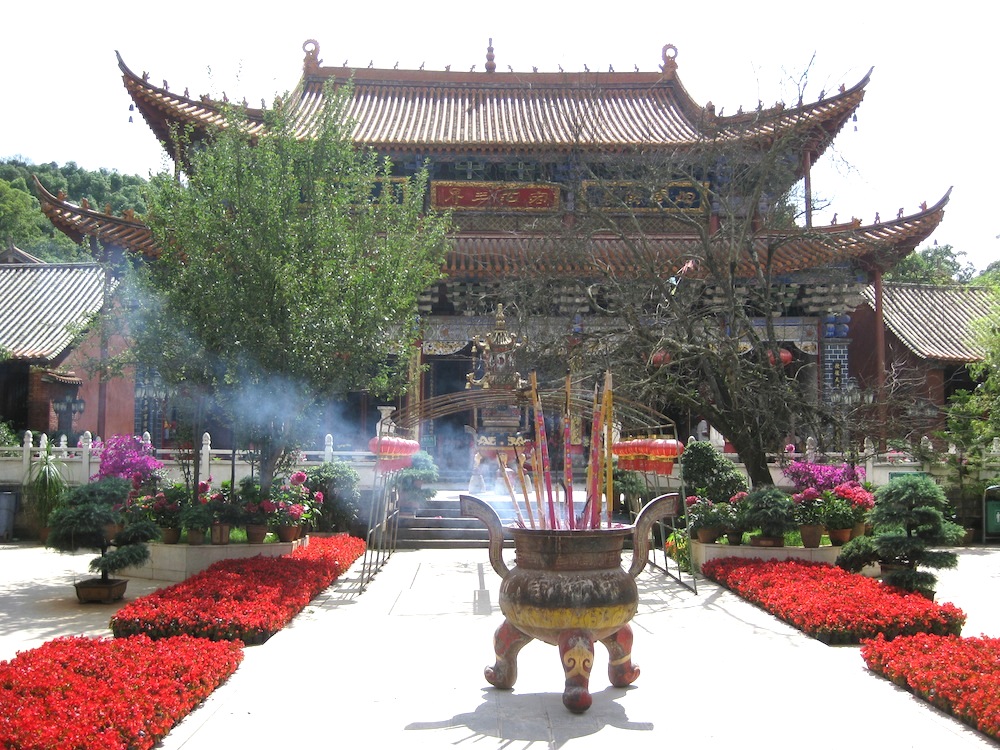
The main hall at the Bamboo Temple
These beautiful, and sometimes terrifying, works are housed in the Bamboo Temple (筇竹寺, “Qióngzhú Sì”), a few miles outside of Kunming on Yu’an Mountain (玉案山, “Yù’an Shān”). The temple has two different founding legends. The first tells a story from when Yunnan was known as the Kingdom of Nanzhao, or “Southern” Zhou, during the 8th and 9th Centuries: Three men were hunting in the Western Hills when they followed a rhinoceros to Yu’an Mountain. There they spotted three monks meditating, but the monks evaporated into clouds, leaving only their walking sticks which, by morning, had grown into a forest of bamboo. The second founding story puts the birth of the temple during the Yuan Dynasty, sometime around 1280, when a renowned monk brought teachings from central China and founded the temple, which was the first Zen Buddhist temple in the province.
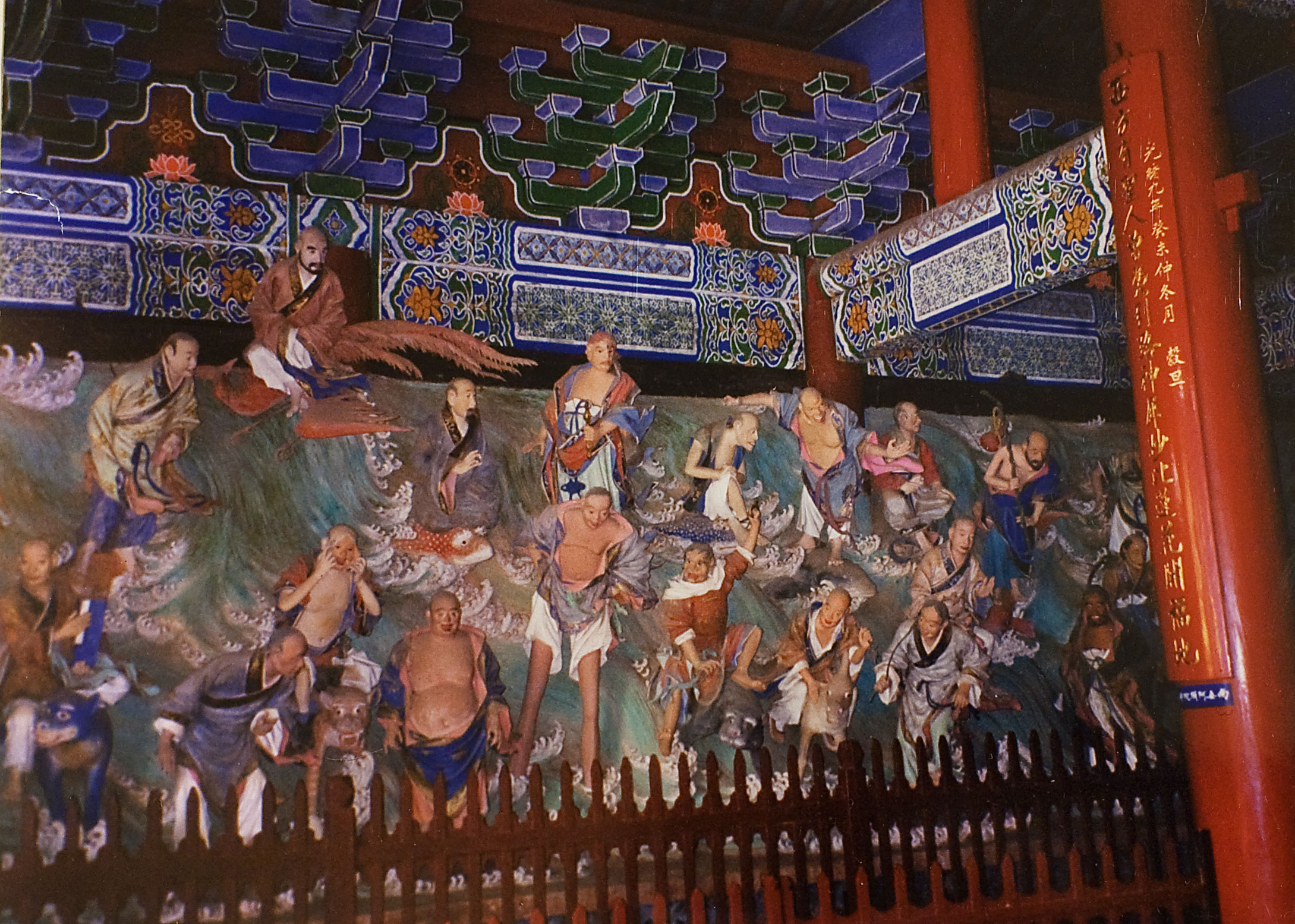
Surfing arhats, back in 2000
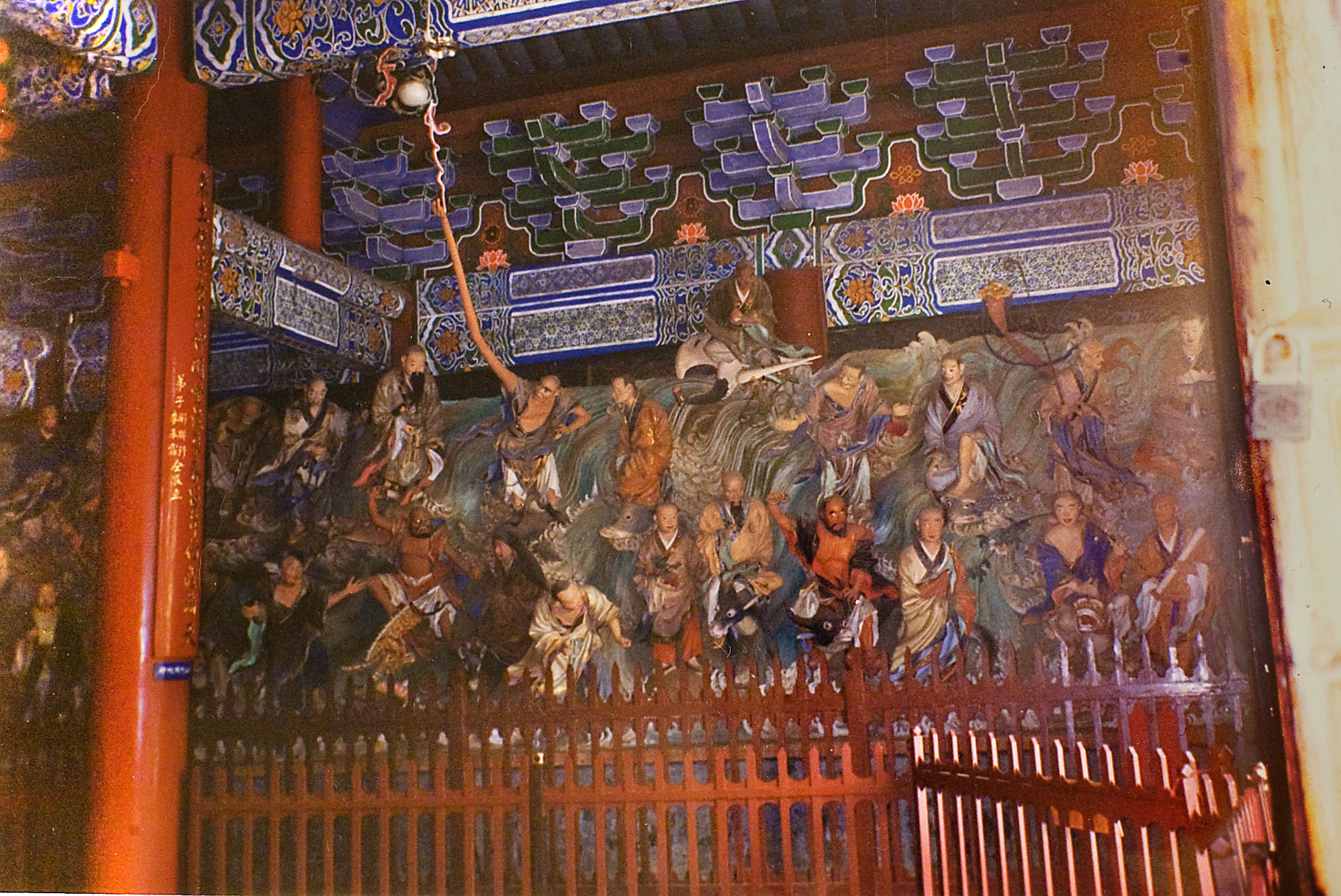
I discovered the Bamboo Temple in 2000, when I first visited Yunnan. At the time, it was a little easier to sneak a photo of the insides of the temples, and I took the above photos of my favorite part of the temple: the surfing arhats. On the walls of the main temple building, Li Guangxiu fashioned dozens of arhats standing in a sea of waves, and surfing on them. Some arhats are surfing on animals like turtles or dolphins, some are riding birds or strange animals. One has tall legs, twice as tall as his body; another has an arm long enough to reach up to the temple’s roof. This is the image that I remembered years later, when I finally came back to the temple. I hadn’t even remembered that the other arhats existed, and I was able to discover them again, as if for the first time.
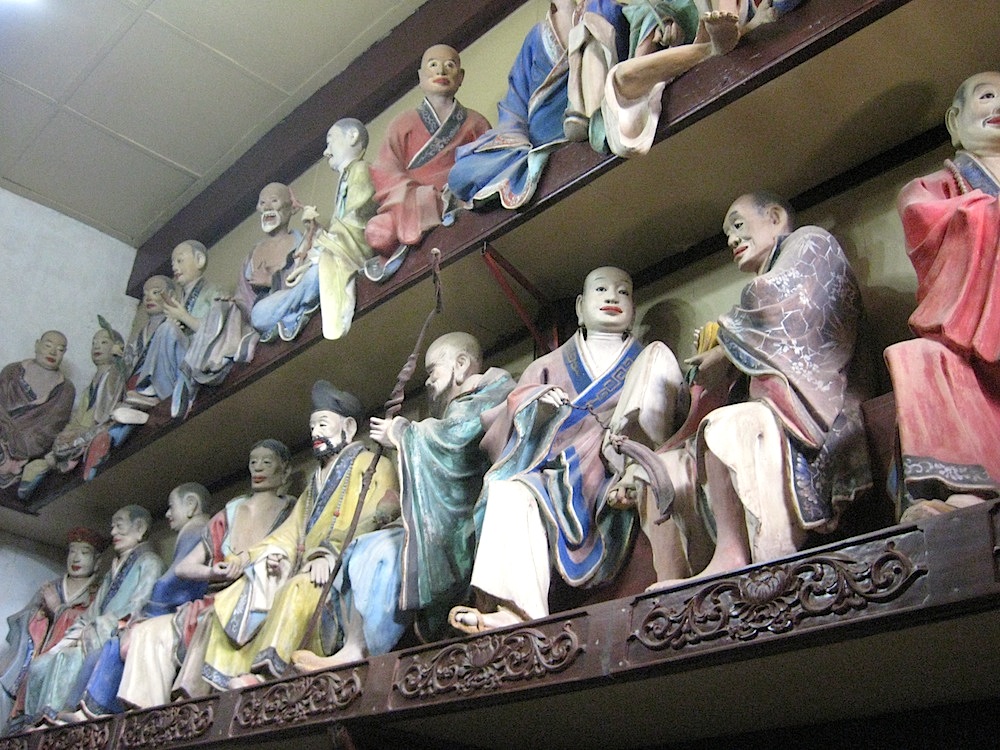
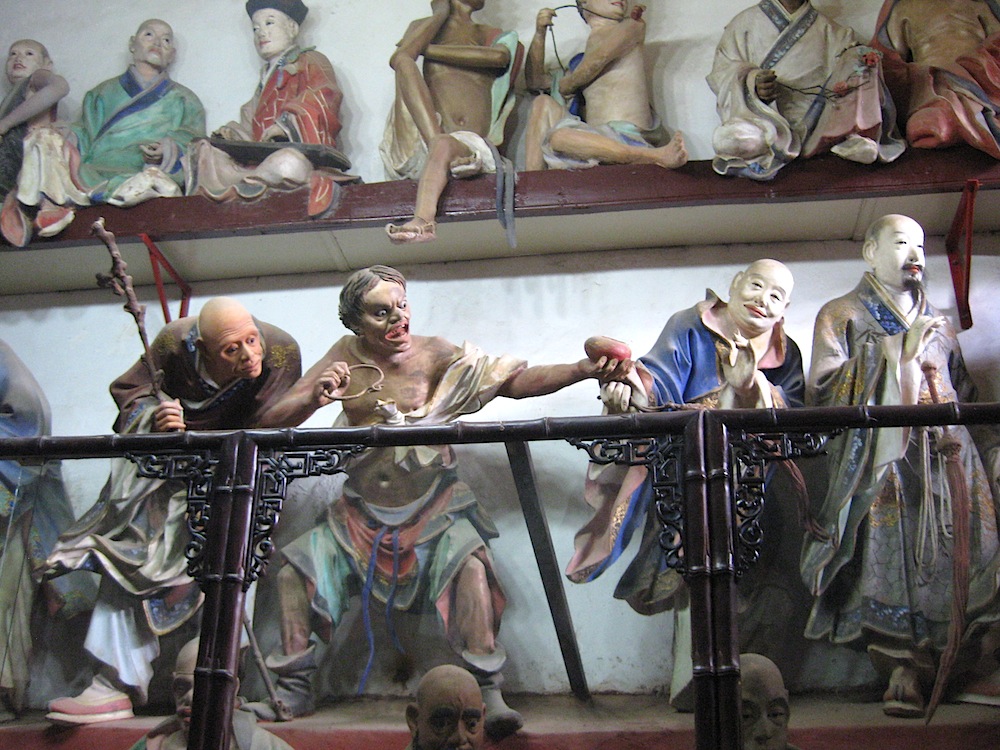
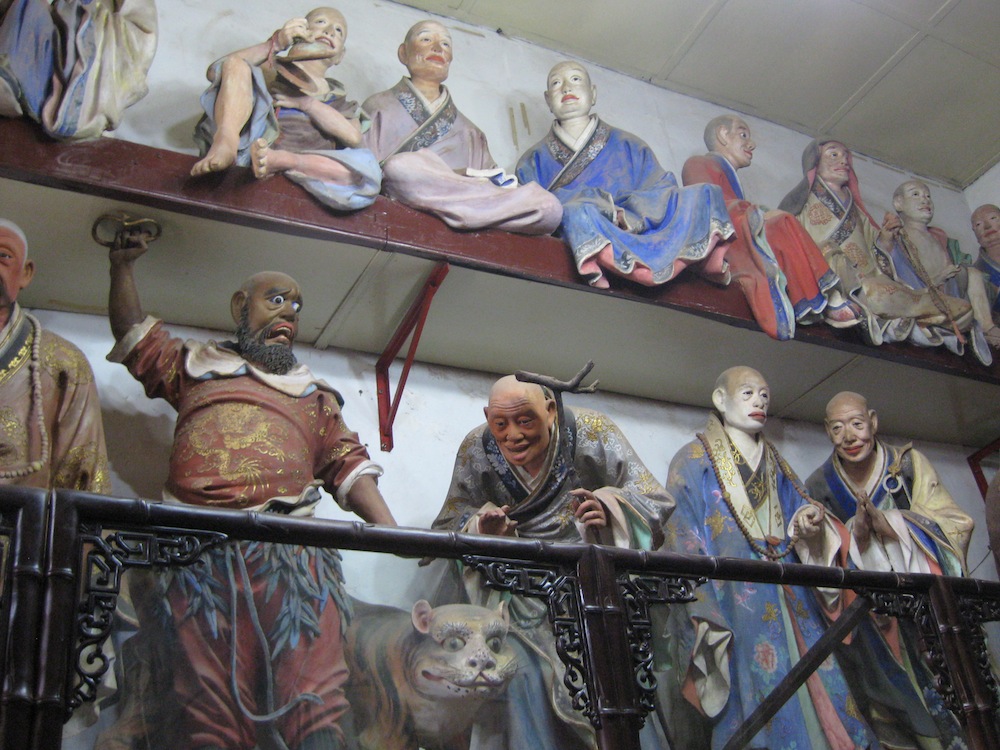 —
—
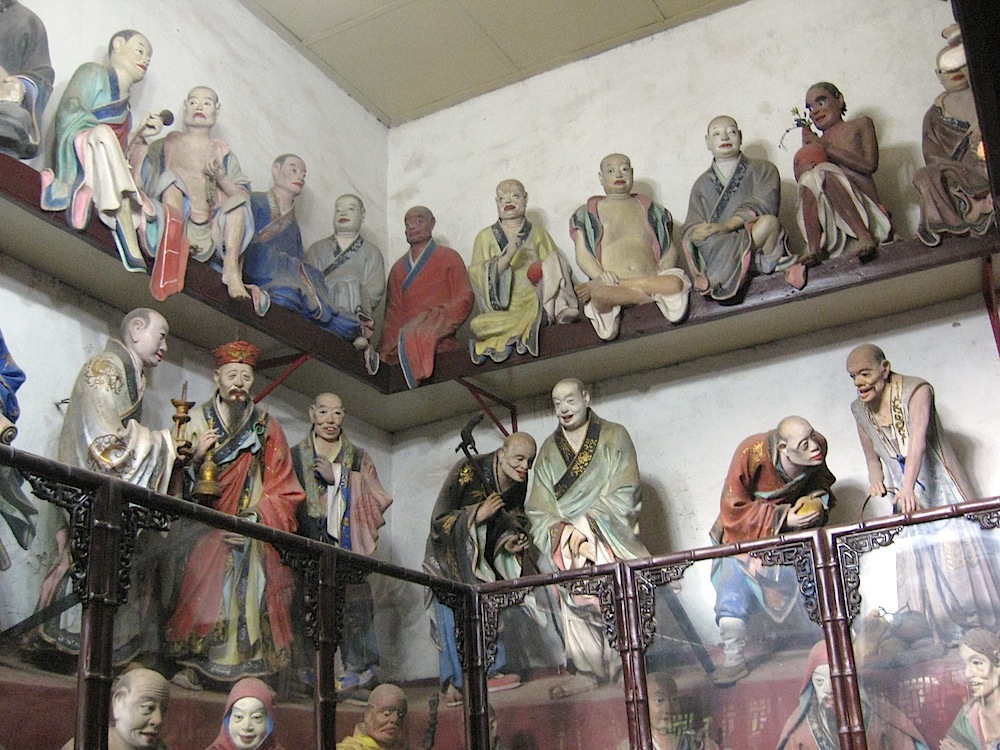
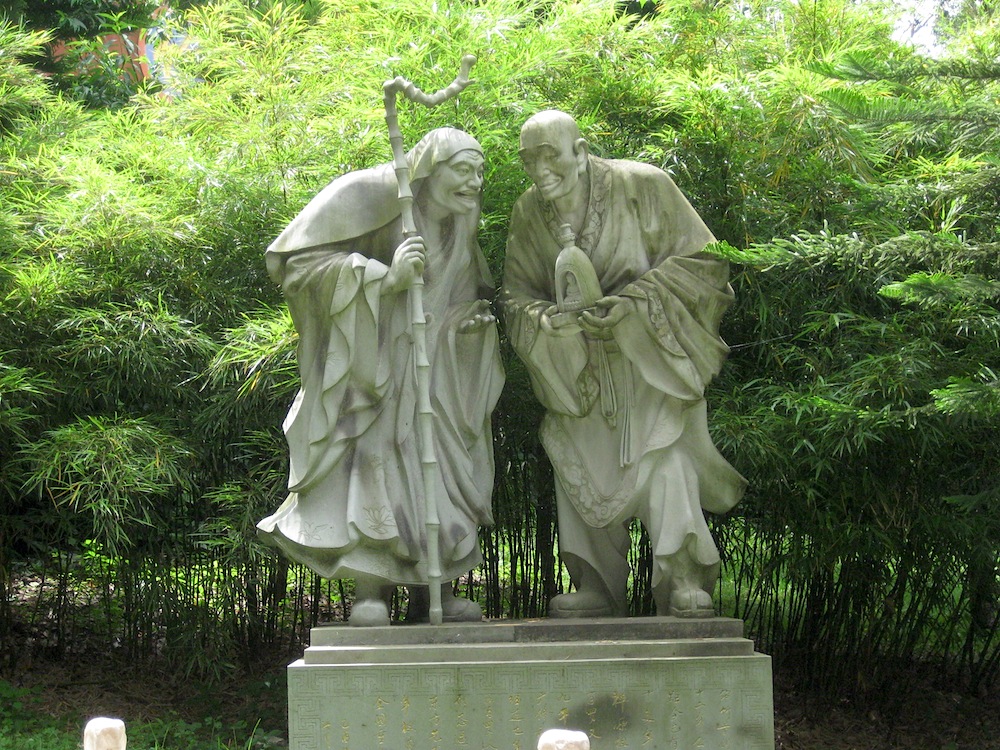
A stone statue of arhats on the temple grounds
Photos: Georgia Freedman (9)



